The Gospel Train (Get on Board)
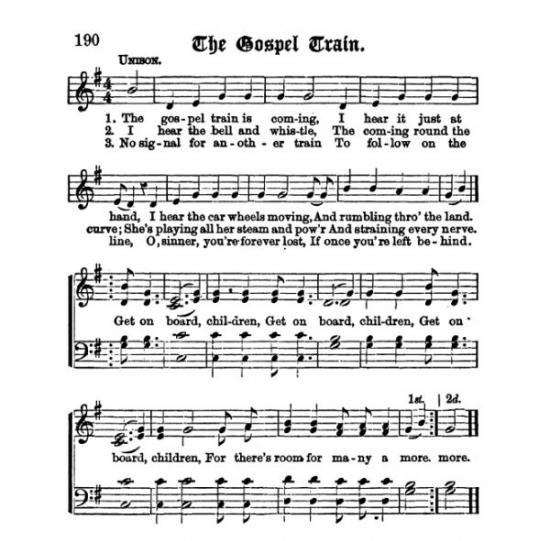
Get on board, little children
(continuer)
(continuer)
envoyé par Pluck 12/4/2023 - 13:48
An' He Never Said a Mumberlin’ Word
anonyme
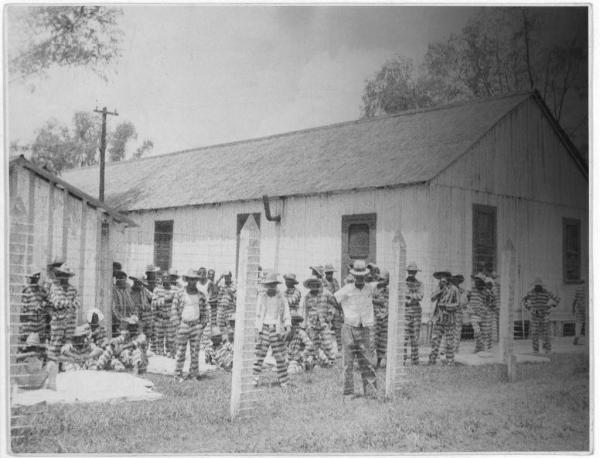
Uno spiritual afroamericano noto anche con i titoli “And He Never Said a Mumblin' Word”, "They Hung Him on a Cross", “Mumblin' Word”, "Crucifixion" ed "Easter".
La varietà dei titoli è direttamente proporzionale alle differenti versioni esistenti.
Io ho scelto – sulla base delle informazioni fornite su Bluegrass Messengers – quella risalente agli anni 20 e attribuita ai Fisk Jubilee Singers, il famoso gruppo vocale nero di fine 800.
Negli anni 30 e 40 furono i Lomax a raccogliere varie esecuzioni del brano in giro per i penitenziari e le prison farms di Mississippi e Louisiana. Ed è in una di queste che i mitici etnomusicologi nel 1933 scoprirono un bluesman straordinario, tal Huddie William Ledbetter, detto “Leadbelly”, che in seguito, negli anni 40, incise più volte “Ed Egli non emise mai un lamento”.
La versione di Leadbelly era una delle canzoni preferite da Kurt Cobain dei Nirvana,... (continuer)
La varietà dei titoli è direttamente proporzionale alle differenti versioni esistenti.
Io ho scelto – sulla base delle informazioni fornite su Bluegrass Messengers – quella risalente agli anni 20 e attribuita ai Fisk Jubilee Singers, il famoso gruppo vocale nero di fine 800.
Negli anni 30 e 40 furono i Lomax a raccogliere varie esecuzioni del brano in giro per i penitenziari e le prison farms di Mississippi e Louisiana. Ed è in una di queste che i mitici etnomusicologi nel 1933 scoprirono un bluesman straordinario, tal Huddie William Ledbetter, detto “Leadbelly”, che in seguito, negli anni 40, incise più volte “Ed Egli non emise mai un lamento”.
La versione di Leadbelly era una delle canzoni preferite da Kurt Cobain dei Nirvana,... (continuer)
Wasn’t it a pity an’ a shame!
(continuer)
(continuer)
envoyé par Bernart Bartleby 5/2/2016 - 14:15
Steal Away
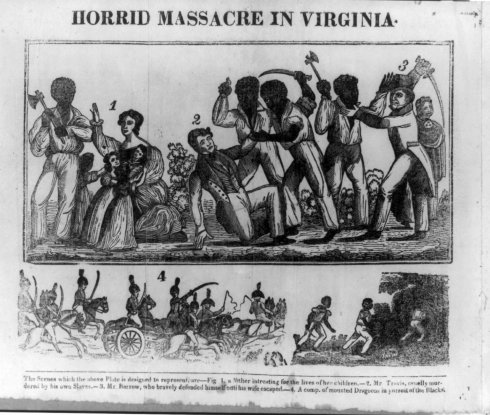
[Prima metà dell’800]
Scritta da Uncle Wallace Willis, un “liberto” entrato a far parte - come molti schiavi afroamericani emancipati – di una nazione indiana, nello specifico quella Choctaw (in Mississippi, Florida, Alabama e Louisiana ), che durante la Guerra civile si schierò con i Confederati.
Con Follow the Drinking Gourd, Go down, Moses e Swing Low, Sweet Chariot, quest’ultima scritta dallo stesso Wallace Willis, un’altra canzone sull’“Underground Railroad”, la rete di cammini segreti attraverso la quale, tra la fine del 1700 e la Guerra Civile, non meno di 30.000 afroamericani riuscirono a scappare dalla schiavitù.
Si ritiene che alcuni di questi “Negro Spirituals” celassero messaggi in codice o, comunque, come anche per molti canti di lavoro, servissero agli schiavi per comunicare tra loro senza essere compresi dai loro padroni ed aguzzini.
Nel caso specifico di... (continuer)
Scritta da Uncle Wallace Willis, un “liberto” entrato a far parte - come molti schiavi afroamericani emancipati – di una nazione indiana, nello specifico quella Choctaw (in Mississippi, Florida, Alabama e Louisiana ), che durante la Guerra civile si schierò con i Confederati.
Con Follow the Drinking Gourd, Go down, Moses e Swing Low, Sweet Chariot, quest’ultima scritta dallo stesso Wallace Willis, un’altra canzone sull’“Underground Railroad”, la rete di cammini segreti attraverso la quale, tra la fine del 1700 e la Guerra Civile, non meno di 30.000 afroamericani riuscirono a scappare dalla schiavitù.
Si ritiene che alcuni di questi “Negro Spirituals” celassero messaggi in codice o, comunque, come anche per molti canti di lavoro, servissero agli schiavi per comunicare tra loro senza essere compresi dai loro padroni ed aguzzini.
Nel caso specifico di... (continuer)
Steal away, steal away, steal away to Jesus!
(continuer)
(continuer)
envoyé par Bartleby 12/1/2012 - 13:54
Swing Low, Sweet Chariot

[Prima metà dell’800]
Scritta da Uncle Wallace Willis, un “liberto” entrato a far parte - come molti schiavi afroamericani emancipati – di una nazione indiana, nello specifico quella Choctaw (in Mississippi, Florida, Alabama e Louisiana ), che durante la Guerra civile si schierò con i Confederati.
Se la catara Lo boièr è la più antica canzone “cripto-simbolica”, in codice, presente sulle CCG, su queste pagine ce n’è almeno un’altra di canzone del genere, canto adoperato da perseguitati per cercare di sfuggire alla schiavitù impedendo ai propri aguzzini di capire intenzioni, piani di fuga ed il percorso del cammino verso la libertà.
Follow the Drinking Gourd era per l’appunto una canzone in codice attraverso la quale veniva indicato uno dei tanti percorsi dell’“Underground Railroad”, la rete di cammini segreti attraverso cui gli schiavi neri tentavano la fuga dagli Stati... (continuer)
Scritta da Uncle Wallace Willis, un “liberto” entrato a far parte - come molti schiavi afroamericani emancipati – di una nazione indiana, nello specifico quella Choctaw (in Mississippi, Florida, Alabama e Louisiana ), che durante la Guerra civile si schierò con i Confederati.
Se la catara Lo boièr è la più antica canzone “cripto-simbolica”, in codice, presente sulle CCG, su queste pagine ce n’è almeno un’altra di canzone del genere, canto adoperato da perseguitati per cercare di sfuggire alla schiavitù impedendo ai propri aguzzini di capire intenzioni, piani di fuga ed il percorso del cammino verso la libertà.
Follow the Drinking Gourd era per l’appunto una canzone in codice attraverso la quale veniva indicato uno dei tanti percorsi dell’“Underground Railroad”, la rete di cammini segreti attraverso cui gli schiavi neri tentavano la fuga dagli Stati... (continuer)
Swing low, sweet chariot
(continuer)
(continuer)
envoyé par Bartleby 12/1/2012 - 12:06
Sometimes I Feel Like a Motherless Child
anonyme
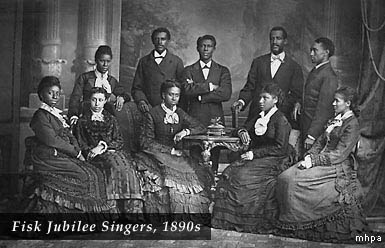
"Sometimes I Feel Like a Motherless Child" (or simply "Motherless Child") is a traditional Negro spiritual. The song dates back to the era of slavery in the United States when it was common practice to sell children of slaves away from their parents. An early performance of the song dates back to the 1870s by the Fisk Jubilee Singers. Like many traditional songs, it has many variations and has been recorded widely.
Superficially, the song is clearly an expression of pain and despair as it conveys the hopelessness of a child who has lost her mother. A subtlety in the lyrics, however, offers a measure of hope. The repetitive singing of the word "sometimes" in the song's melody line suggests that at least "sometimes" I do not feel like a motherless child
Although the plaintive words can be interpreted literally, they were much more likely metaphoric. The “motherless child” could be a slave... (continuer)
Superficially, the song is clearly an expression of pain and despair as it conveys the hopelessness of a child who has lost her mother. A subtlety in the lyrics, however, offers a measure of hope. The repetitive singing of the word "sometimes" in the song's melody line suggests that at least "sometimes" I do not feel like a motherless child
Although the plaintive words can be interpreted literally, they were much more likely metaphoric. The “motherless child” could be a slave... (continuer)
Sometimes I feel like a motherless child
(continuer)
(continuer)
envoyé par Marcos 30/6/2009 - 23:45
×
![]()

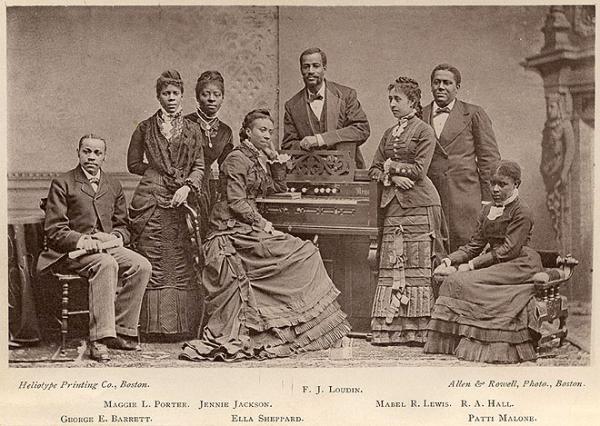
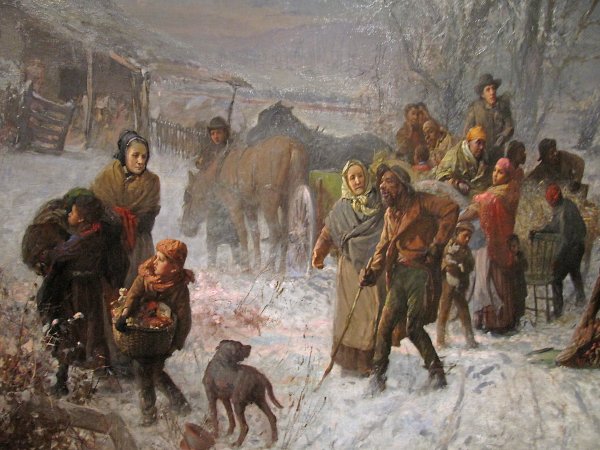
This African-American spiritual was first published in 1872 as one of the songs of the Fisk Jubilee Singers. Although it is usually cited as traditional, several sources credit a Baptist minister from New Hampshire, John Chamberlain, with writing it. Captain Asa W. Bartlett, historian for the New Hampshire Twelfth Regiment, reported Chamberlain as singing the song on April 26, 1863, during Sunday services for the regiment.
In the 1950s and 1960s, participants in the Civil Rights Movement often sang the song with revised lyrics.
da BALLAD OF AMERICA